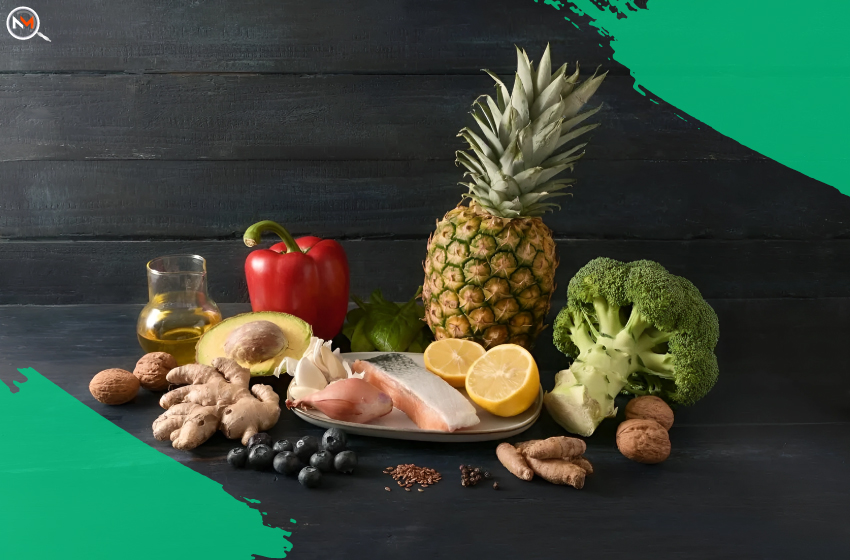
Anti-Inflammatory Diet: Practices That One Must Follow
- Food Lifestyle
 Donna Hussain
Donna Hussain- October 12, 2022
- 0
- 16 minutes read
An anti-inflammatory diet does not refer to any specific diet as there is no such food practice that is prevalent. However, it does not mean that such a concept doesn’t exist at all. Researchers around the world have identified certain foods that have anti-inflammatory properties that help in reducing pain for people who suffer from chronic diseases like arthritis. It is also known as a Mediterranean diet and mainly contains fish, vegetables, and olive oil, among other food items that come under this category.
Nancy Park, a registered dietitian nutritionist with Henry Ford Health, noted why an anti-inflammatory diet is important citing the problems that inflammation can cause in one’s body. She said:
“Chronic inflammation is thought to be at the root of a number of diseases. It is like a smouldering fire inside of your body. The risk of heart disease, obesity, inflammatory bowel diseases, arthritis, Alzheimer’s, psoriasis, and more could be reduced with an anti-inflammatory diet, as the nutrients in these foods contain properties known to ease inflammation. An anti-inflammatory diet could improve health conditions, lead to a longer life, and even slow the ageing process.”
10 Anti-Inflammatory Diet Requisites
The list mentioned below talks about the practices that one should follow in order to maintain a healthy anti-inflammatory diet. It consists of things to do and practices to avoid. In addition, it also contains a brief list of the best anti-inflammatory foods to eat and inflammatory foods to avoid. Therefore, if you want to start with such a diet go through the list carefully and make sure that you adhere to the points noted below.
1. Incorporate Fish Or Its Products
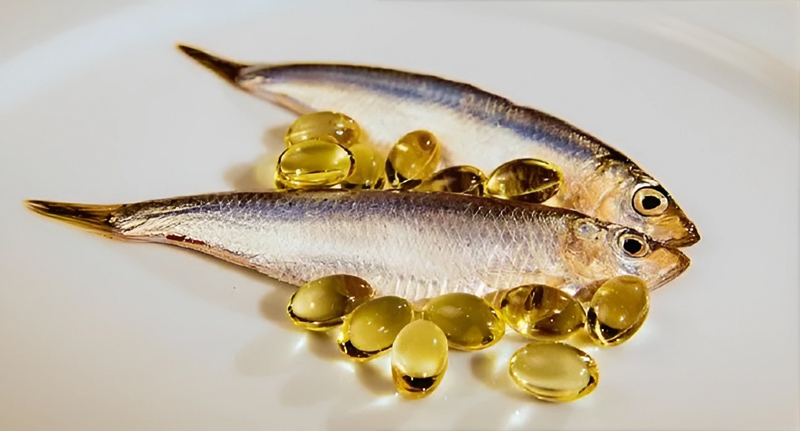
One who wants to get started with an anti-inflammatory diet is advised to be generous while consuming fish or its products. This is because some types of fish contain high amounts of omega-3 fatty acids, which are known to reduce inflammation in the body. These work to curb the production or prevalence of two prominent inflammatory proteins in one’s body, C-reactive protein (CRP) and interleukin-6.
This is why a diet that incorporates fish or its products like fish oil can find it extremely beneficial for the overall working of the body. It is recommended that one should eat at least 3 to 4 ounces of fish about twice a week. The best sources of anti-inflammatory properties containing fish are tuna, salmon, and sardines.
2. Eat Generous Amounts Of Fruits And Vegetables

Fruits and vegetables are known to have a host of antioxidants that support one’s immune system and thus promote recovery or prevention from disease-causing germs or viruses. In addition, certain fruits and vegetables also have anti-inflammatory properties and are perfect to be included in a Mediterranean diet. Fresh fruits and vegetables are one of the best anti-inflammatory foods to consume.
Therefore, it is advised that about 1 and a half to 2 cups of fruit should be consumed in a day along with about 2 to 3 cups of vegetables per meal (large-portion meals) in a day. The best sources of anti-inflammatory diet constituents are said to be colourful fruits and vegetables such as blackberries, blueberries, strawberries, cherries, spinach, broccoli, and kale. Also, don’t forget to incorporate onions into the diet as they are one of the foods that reduce inflammation. In addition, they are high in antioxidants and can be eaten both raw or sautéed.
3. Eat Nuts Or Seeds
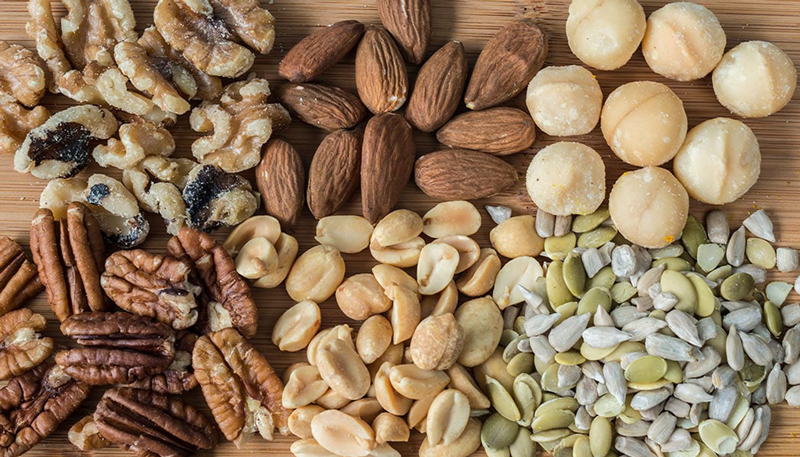
Nuts and various kinds of seeds are found to be high in anti-inflammatory properties. So, don’t forget to add a few of them to your diet for the best results. We know it is sometimes not possible to add a lot of such ingredients to a diet as nuts are also high in oils and fats and one must have a restricted count of these. However, try substituting them with chia seeds and flax seeds, which have many other benefits from such inflammation-fighting agents. But yes, it is advised not to omit these foods that reduce inflammation as they can offer better results over time.
It is recommended to have at least 1.5 ounces of nuts and seeds on a daily basis (approximately a handful). It would be beneficial if eaten early in the morning as nuts soothe the stomach from acids that are built up overnight. The components to add to the diet include pistachios, almonds, pine nuts, walnuts, flax seeds, and chia seeds. You can try eating them as it is or soaking nuts like almonds in water overnight. In addition, the seeds can be eaten on their own or with cereals, milk, or yoghurt. Incorporating seeds will provide adequate fibre content as well, which is another added advantage of the diet.
4. Add Beans To Your Diet

Beans, like fruits and vegetables, have high antioxidants and also are one of the best anti-inflammatory foods to consider. In addition, they are low in cost and serve as a perfect source of protein, fibre, and folic acid. Further, they are a rich source of some essential minerals like iron, magnesium, and potassium. One should try consuming about one cup of beans about two times a week. The best ones to include in one’s diet are red kidney (rajma), black, garbanzo, and pinto beans. You can eat these beans in simply boiled form or can make them a little flavourful by cooking them with added spices.
5. Cook Using Olive Oil

Olive oil is a source of monounsaturated fat that is good for the heart. It also contains antioxidants and an anti-inflammatory agent, oleocanthal, which can aid in reducing chronic inflammation in one’s body and the pain caused by it. It is recommended to use about 2 to 3 tablespoons of olive oil in salad dressing or cooking other dishes. Combining it with foods that reduce inflammation can be immensely beneficial.
Also, try using extra virgin olive oil as it is not processed or refined and can do much good to the body compared to other processed alternatives. One should go for extra virgin olive oil, which is packed in dark bottles that have obtained a certification from any recognised food agency. Also, check if the harvest date is not far from the purchase date.
6. Try Avoiding Nightshades
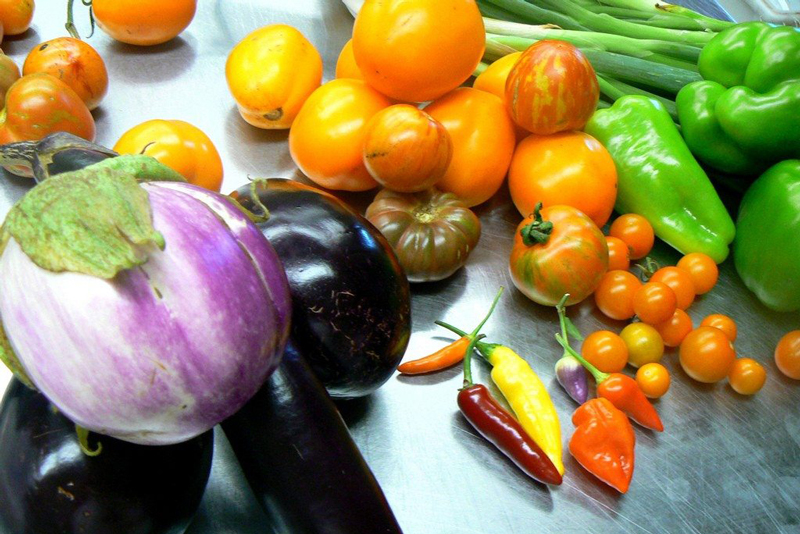
Nightshade vegetables are often attributed to arthritis problems and are advised to be eliminated from an anti-inflammatory diet. These constitute some of the veggies that come under the list of inflammatory foods to avoid. These include veggies like bell peppers, other peppers like paprika, tomatoes, potatoes, and eggplant. However, the clinical evidence to support this fact is limited, therefore, we recommend you to not take such risks if you are someone who is suffering from chronic inflammation and diseases related to it.
So, try cutting nightshade vegetables for about two weeks and see if there are any changes to your symptoms (if diagnosed with any type of the abovementioned diseases). In case you witness positive changes then continue with the diet without these vegetables. If it is the other way round, you can choose to have them in moderate quantities.
7. Don’t Consume Processed Food Items

Processed food items like chips, cookies, or other common snacks are known to contain unhealthy fats, therefore, it is recommended not to consume them at all. This is because such fats can trigger inflammation in the body. In addition, these food products are packaged way before they are actually consumed, which means that a whole lot of preservatives have been used to store them which can be detrimental to you as well.
Moreover, canned products like veggies, soups, or other items are known to be high in sodium content. This can lead to high blood pressure in the body, which is not a healthy thing to happen. So, go for fresh fruits and veggies. In case of emergency, you can even consider frozen vegetables but not canned ones.
8. Reduce Salt Intake

Excess salt intake is anyway hazardous for the human body due to various reasons. These include high blood pressure, excessive water retention, and even inflammation. Therefore, people following an anti-inflammatory diet should try curbing salt intake for better results. This will aid in the overall betterment of your body internally.
Nancy Park, the expert mentioned in the article, also spoke about how we do not have to change our regular diet to lessen salt consumption. She advises one to go with the regular vegetable intake (or other food items, of course not the ones that are asked to avoid in a Mediterranean diet) and can make it flavourful by adding spices and lowering the salt content. She explained this by saying:
"Grow herbs in your garden or in pots on your windowsill. Extra flavour from these spices and herbs can also reduce the amount of salt you use, which is especially important for those with high blood pressure.”
9. Alcoholic Drinks To Be Taken In Moderation

People who are diagnosed with Rheumatoid arthritis or RA should try limiting the consumption of alcoholic drinks. This is advised to them in all cases but special supervision is required if they are consuming medications like methotrexate. You can ask the doctor to prescribe you a limit on alcohol intake. However, there can be cases where you won’t be allowed to drink such beverages. But yes, people without RA can try having red wine as it constitutes a compound called resveratrol, which is known to have anti-inflammatory properties. However, don’t forget to have it in moderation as excessive alcohol consumption is not good for one’s overall health.
10. Fill Up Your Plate With Multiple Food Items
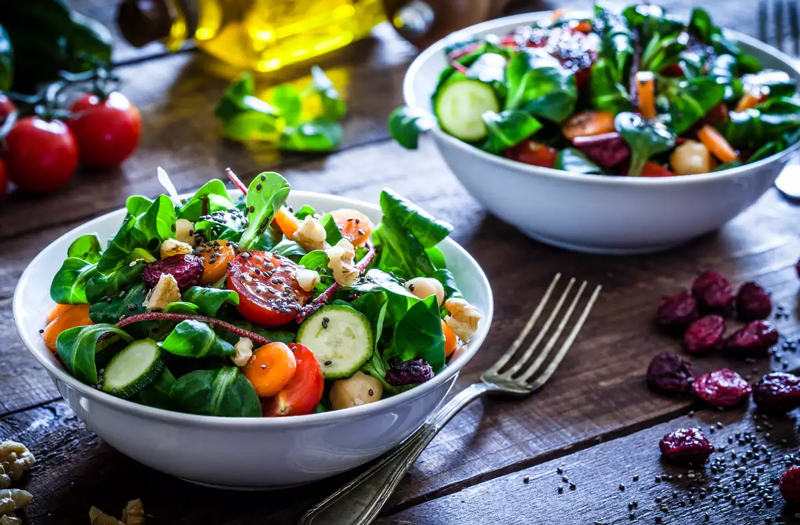
When on an anti-inflammatory diet, try filling up your plate with a diverse variety of food items that are recommended to eat during such a diet. These include colourful fruits and vegetables, fish, nuts or seeds. The more colours on your plate, the more appetizing it looks. This is why you can sauté some beautiful leafy vegetables along with carrots or radishes along with some fruits like blueberries and bananas. You can then add some bread or a portion of rice to complete it. Different components in the plate would provide distinct benefits. In addition, after having such a meal you won’t feel hungry too early as it will keep you full for longer hours (thus reducing meals and salt intake that would come with them).
A Dietary Round-up!
An anti-inflammatory diet is quite beneficial for those suffering from chronic inflammation. Therefore, it must be followed religiously. In order to achieve the best results, make sure to eat plenty of fresh fruits and vegetables along with a good portion of fish, which serve as some best anti-inflammatory foods. Try limiting the intake to the amounts mentioned above. Further, incorporate nuts and seeds into your diet for fibre and inflammation-fighting effects.
Also, remember the cautionary points relating to nightshade vegetables (inflammatory foods to avoid for checking if they do harm), salt, and alcoholic drinks. Moreover, always try to have a filled-up plate that has good colours in it so that your urge to eat is elevated. In addition, just make sure to take advice from your doctor on the diet if you are someone who is suffering from underlying diseases, especially any kind of arthritis.

